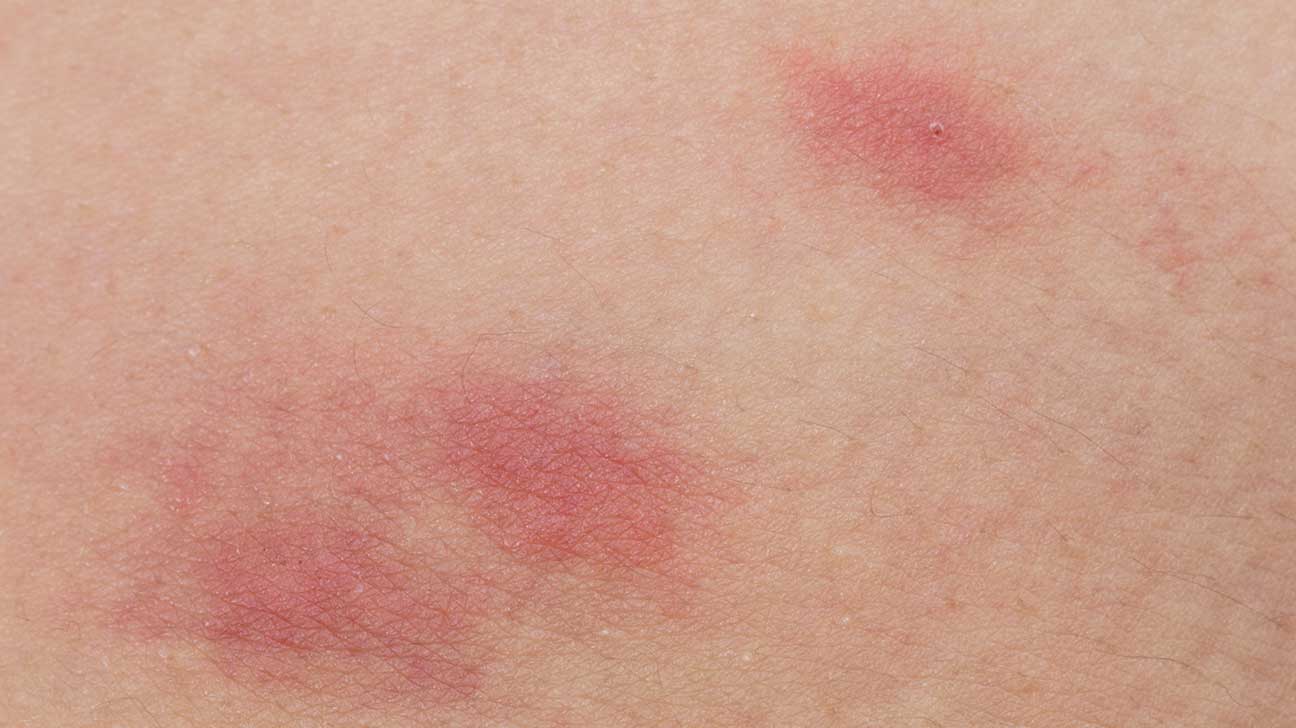Skin Rash Symptoms, Causes, Diagnosis and Treatment

What is Skin Rash?
Skin Rash or body rash is generally an inflammation on the skin. It results in change in color and texture of the affected area. Skin or body rash could be the effect of irritation, disease or an allergic reaction. Allergies could be to food, chemicals, plants, animals, insects or other environmental factors. This kind of skin rash could affect the whole body or be area exact. Eruptions on the skin of the back are called Back Rash.
Skin Rashes usually explain some disturbances in the human system. These disturbances are normally the reason for the formation of rashes on the skin of any person. There are several reasons which could cause skin rashes. Following are some of the common causes of having skin rashes.
Rashes are often caused because of anxiety, allergy or other infections. Numerous antigens affect the skin through lymphocytes. If these lymphocytes are activated due to these antigens, they produce chemicals that might cause rashes on the skin. For instance, when we are allergic to some medicine, the reaction takes place on the skin and in the lymph glands as well. Viral infections also cause rashes as the viral particles react with the epidermis or top layer of skin.
Symptoms of Skin Rash
Even though rash is simply recognized, all rashes are not the same. Rashes vary in their appearance, timing, location or distribution, and duration. These Symptoms of Skin Rash could surface individually or in combination, depending on the cause of your rash. In general, rashes can be described as:
- Macular: Flat, red spots
- Papular: small, raised, solid bumps
- Macular and papular: A combination
- Papulosquamous: A combination of papules and scaly areas
- Vesicular: Small, raised, fluid-filled blisters
Some people may experience the following related rash symptoms and signs:
- Skin discoloration
- Itching
- Bumps on skin
If you have a new rash and you have a fever or some other generalized disease associated with skin rash, it would be best to see your doctor. They also may build up more major symptoms of skin rash for example wheezing or dangerously low blood pressure. Hives are very itchy, whereas some other drug rashes itch little, if at all.
Causes of Skin Rash
There are a number of potential Causes of Skin Rash, including allergies, diseases, reactions, and medications. They can also be caused by bacterial, fungal, viral, or parasitic infections.
- The most common causes of skin rash are:
- Cellulitis
- Chickenpox
- Eczema
- Erythema Multiforme
- Hand, Foot and Mouth Disease
- Impetigo
- Keratosis Pilaris (“Chicken Skin”)
- Measles
- Molluscum Contagiosum
- Pityriasis Rosea
- Prickly Heat
- Psoriasis
- Ringworm
- Scabies
- Scarlet Fever
- Slapped Cheek Syndrome
- Urticaria (Hives)
Diagnosis of Skin Rash
Your Health Care Provider will give you a physical examination and will ask you some questions about your symptoms, Diagnosis of Skin Rash such as:
- How long have you had the irritation?
- Does it come and go?
- Have you been in contact with any irritating substances?
- Do you have Allergies?
- Where is the itching most severe?
- What medications are you taking (or have recently taken)?
You may need to suffer more tests if your healthcare provider can’t determine the cause of your itching from your answers and a physical exam.
Treatment of Skin Rash
Getting rid of a rash with conventional Treatment of Skin Rash approximately always includes a topical ointment or cream commonly including over-the-counter as well as prescription-strength corticosteroids for example hydrocortisone. In fact, long-term use of corticosteroids is known for causing thinning of the skin among other side effects. Other conventional Treatment for Skin Rash how to get rid of a rash varies depends on the specific diagnosis of skin rash.
Other Treatment of Skin Rash
- Taking an oral antihistamine
- Stop using new cosmetics or lotions because they may have triggered the rash.
- Using a good moisturizer to keep your skin hydrated
- Avoid scratching the rash because doing so can make it worse and could lead to infection.
- Do not rub the rash dry, pat it.
- Cortisone creams that can be purchased over-the-counter or online may ease itching.
By : Natural Health News




